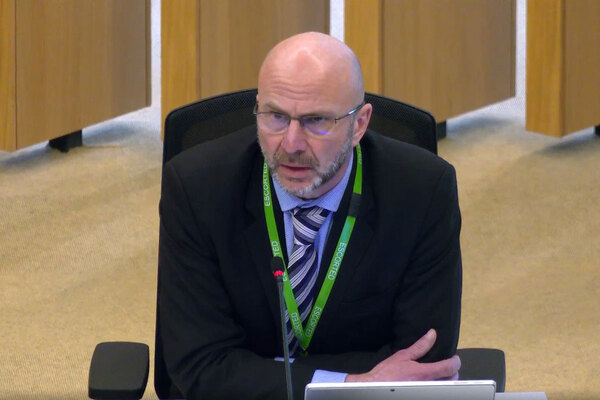You are viewing 1 of your 1 free articles
We couldn’t make renters reform work, Badenoch says
Kemi Badenoch has slammed the government’s Renters’ Rights Bill, saying the Conservatives “tried to make it work and we couldn’t”.

The shadow housing secretary claimed that the previous government’s attempt at rental reforms was abandoned because “it was having negative effects”.
The Renters (Reform) Bill reached the House of Lords earlier this year but it was shelved in May ahead of the general election, leaving the Conservatives’ promise to end Section 21 no-fault evictions unfulfilled.
Ms Badenoch, who is currently standing to be the next Conservative Party leader against former housing secretary Robert Jenrick, claimed that Labour’s new bill would lead to “more chaos”.
Speaking at the bill’s second reading in the House of Commons, she claimed that legislation in Scotland had failed to protect renters, adding that “you cannot buck the market”.
“The reason why [the Renters (Reform) Bill] did not get through is because we recognised the flaws in the bill,” she said.
“We tried to make it work and we couldn’t,” she added. “It was having negative effects.”
Ms Badenoch claimed that the new bill will “cause gridlock in our justice system” and leave landlords facing “months of uncertainty and cost” if their tenants fall into arrears.
“If the government wants to help renters, it should drive up housing supply. So far, no sign of that. If the government wants to help renters, it needs to reduce immigration. So far, no sign of that,” she said.
In 2023-24 under the Conservatives, housebuilding starts in England fell 22% year-on-year, while the UK population grew 1% due to net internal migration of 677,300.
Before the election this summer, then-housing secretary Michael Gove told Inside Housing that it was more important to prioritise leasehold reform over rental reform before the election, but added that if the Conservatives were re-elected they would get rid of Section 21 “once and for all”.
Angela Rayner, deputy prime minister and housing secretary, said that the new bill “builds upon the good work of my predecessor” (Mr Gove), but added that it was “fundamentally different” and “goes above and beyond” what the Conservatives were offering.
She said that the bill will abolish Section 21 evictions for new and existing tenancies at the same time, unlike the previous bill, which had “last-minute caveats”.
The bill will remove fixed-term tenancies, with tenants being able to leave a property at two months’ notice, while landlords must give four months’ notice to evict their tenants “so there is the time to find a new home”.
Labour will also give tribunals the power to defer rent increases by up to two months, “ending the injustice of economic evictions”.
Ms Rayner also addressed the issue of court reform, saying she recognised the “huge pressures on the court system”.
“To support the changes, we will be digitising the county court possession process, working closely with colleagues in the Ministry of Justice to create a modern, efficient service for our courts,” she said.
“We’ll also take steps to ensure that wherever possible, disputes will be resolved at an early stage. And with the new PRS landlord ombudsman service introduced in the bill playing a vital role in supporting this.”
Labour MP Florence Eshalomi told parliament that her constituents are facing “20-30% rent increases”, adding that the bill must address “extortionate rent increases, which are as good as an eviction for many”.
Liberal Democrat spokesperson Gideon Amos welcomed the bill but suggested it should still allow fixed-term tenancies “where landlord and tenant agree”.
Landlords have expressed concern over the bill. Chris Norris, policy and campaigns director at the National Residential Landlords Association, said the bill “must not worsen an already chronic shortage of homes in the sector”.
He said: “All this would do is weaken tenants’ purchasing power, making it more difficult for them to hold rogue and criminal landlords to account as a result.”
Gareth Atkins, managing director of lettings at Foxtons, said the scrapping of fixed-term tenancies “could destabilise the living arrangements of renters across the nation”.
But campaign group Generation Rent said the bill offers “long-overdue protections from arbitrary eviction”, adding that “effective reform could cut cases of private renter homelessness by half”.
Sign up for our daily newsletter
Already have an account? Click here to manage your newsletters











